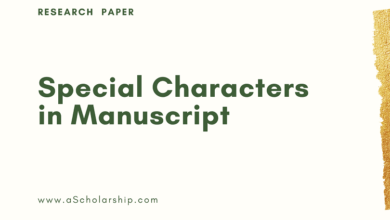Ethics for Authors: Paper Writing Ethics for Authors and Researchers – Ethics in Writing
Journal Publications: Research Paper Writing Ethics for Authors

Until now you might have considered scientific writing as a medium to convey the findings of your research. Yes, you have been thinking right, but there are a lot of other important factors related to scientific writing. Ethics is one of those. To make it simple, ethics is a set of standards that administer an individual’s actions or activities in conducting research and writing it.
Like every other line of work, scholars and academicians commonly face ethical dilemmas. And, it is the responsibility of every scholar, researcher, and academician to follow the ethical rules of research and scientific writing. As the scientific progress counts on ethical principles and values. Therefore, this article is specially formulated to share a piece of vital information on ethical principles and concerns in scientific research writing.
Ethical Concerns in Scientific Writing
The two most important problems related to ethics in scientific writing are plagiarism and authorship.
What is plagiarism?
It is quite difficult to explain what plagiarism is in a few sentences. However, it can simply be defined as the purloining of an individual’s work, ideas, findings, strategies, or writings without giving appropriate credit. Generally, the use of another person’s words is considered plagiarism. Also, usage of one’s own work without proper citation is also considered plagiarism, known as self-plagiarism. Any work that has been published cannot be used again in any form.
Many beginners consider using published content with diction changes and paraphrasing. Such techniques do not beget any positive outcomes. The use of such techniques is simply plagiarism. Besides, re-use of any visual content without proper attribution is also regarded as plagiarism.
In addition to advantages, there are a lot of disadvantages of modern technology. With the latest computers and smartphones, it is more than easy for beginners to copy-paste any material from any source. The young researchers and scholars need to learn more about citations and referencing. Remember, scientific malfeasance is now considered a crime.
Why do authors fall back on plagiarism?
Usually, the authors who are new in the field do not know the strict rules for plagiarism. Therefore, on many occasions the plagiarism is unintended. Nevertheless, many authors intentionally choose plagiarism because of a number of reasons.
The first and most important reason is the pressure that most of the scholars face today. Often we hear people saying, “Publish or perish.” Which apparently means that you either publish or perish. Such notions bring scholars under extra pressure. Besides, language is another barrier. Many scholars in the academic world are committed to their research and work, but lack language and presentation skills. Hence, in order to produce quality literature, they resort to plagiarism. Furthermore, some authors don’t have the required time. Consequently, to make it fast, they try copying texts instead of producing their own.
How to avoid plagiarism?
Below mentioned are some guidelines that you should follow to avoid plagiarism:
-
-
- Use quotation marks and special symbols as per the standards of scientific writing. If you want to write the exact words that another author has used, you can write it as a quotation. Write the words in between quotation marks and mention author’s name.
- Paraphrasing is also an important technique that you should learn. It allows you to write someone’s idea in your own words.
- Use proper methods of citation and referencing. Give proper credits whenever you mention work done by others.
- You can also ask experts for assistance, if you do not have the required writing skills.
- Make use of the websites or software that provide plagiarism testing.
-
What is authorship?
Authorship issues are critical in nature. Any issue related to authorship can severely damage the profile of an author. When it comes to authorship, the main issues are the determination of author contributions and author order. Today, there is an added pressure on academics and students to get their names in as many publications as possible. If you give credit to someone who has not made any contribution, or you deprive someone of due credits, you will be accused of dishonesty.
The common types of authorship misuse are described below:
-
-
- Coercion authorship: coercive methods are used to get the authorship. Usually, seniors or teachers use their positions and force their subordinates or students to get their names in the paper.
- Honorary authorship: you gift the authorship to someone who has not made any contribution as a gesture to gain illegitimate advantages. Many scholars do this to gain popularity or make their work worthy.
- Mutual support authorship: two or more authors collaborate and give author credits to each other.
- Ghost authorship: the name of the actual author is not mentioned in the paper. All the credits of the work are claimed by persons who were not involved in the research.
- Denial of authorship: the author is completely deprived of the authorship rights. The paper is published without giving due credit to people who have made sufficient contributions.
-
How to avoid authorship misuse?
Below mentioned are some useful guidelines that you can follow to avoid authorship misuse in your literature review or research paper:
-
-
- Before asking for assistance, tell your colleague about the authorship or acknowledgment you can offer. It is quite possible that your friend or colleague might over expect the outcomes. Hence, clarify the details before getting started.
- Remember that supervision of group research, gathering data and sponsorship are not eligible for authorship.
- Before starting the project, describe the responsibility of every individual involved.
- Make sure that the person has made any significant contribution before mentioning his/her name in the author’s list. Also, ensure that every individual that enjoys credits reads the manuscript and revises it before final submission.
-
Regretfully, it is common for authors to not adhere to ethical guidelines. However, it is never too late. Make sure you follow all the ethical guidelines while writing your research paper or article. There is a lot of dependent on your individual efforts!



